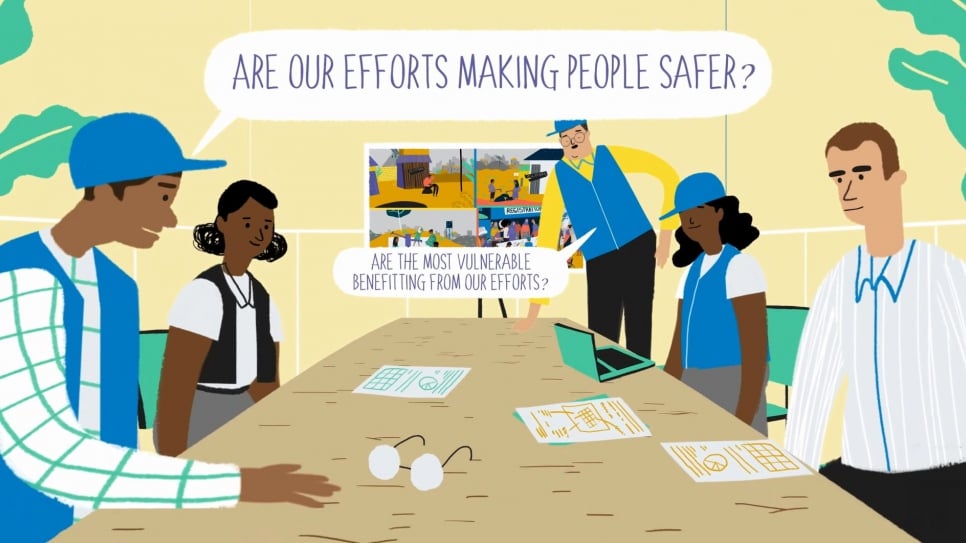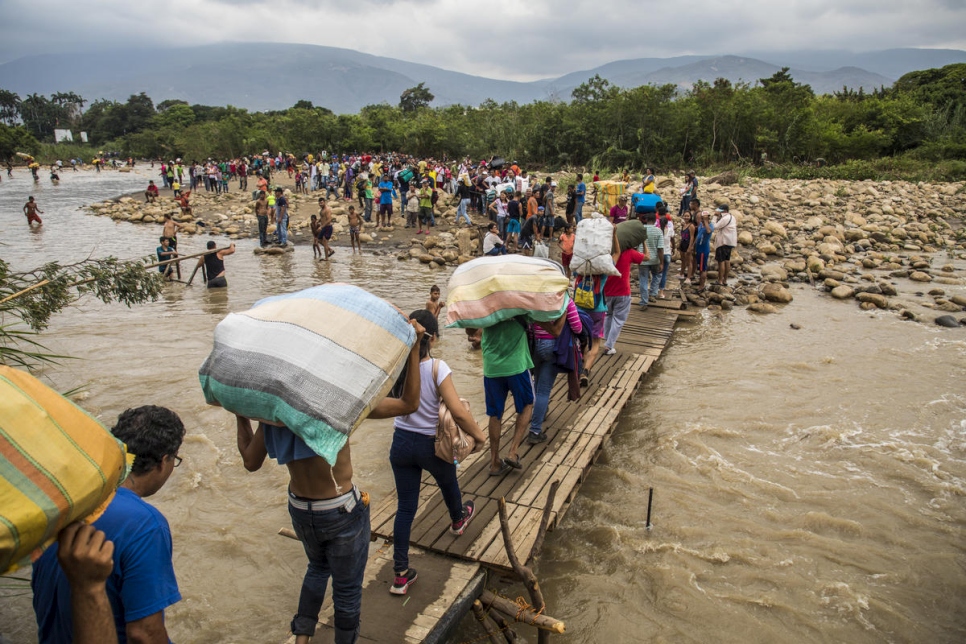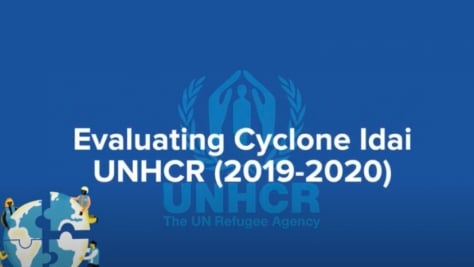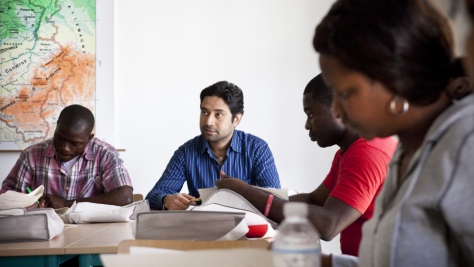Evaluation Office
What's new: reports, news and publications
UNHCR's Evaluation Policy 2022
UNHCR's Evaluation Policy, 2022, provides for the building of a stronger, evidence-informed, quality evaluation system in the organization based on the principles of impartiality, credibility and utility. The policy provides the framework for a whole-of-organization approach, supporting regionalization and decentralization, and strengthening results-based management.
Global evaluation: International COVID-19 response fell short in upholding refugee rights
The collective global response to the COVID-19 pandemic fell short in protecting the rights of refugees despite extraordinary efforts by local actors and the international community, according to a major international report released today.
Evaluation Office 2022 Annual Report
2022 was marked by significant instability. Many crises have unfolded in the past year, hitting vulnerable communities the hardest, including in Ukraine, Afghanistan, Ethiopia, southern Turkey and northern Syria.
In light of these unprecedented times, the role of evaluation as a critical tool to inform evidence-based decision-making is more important than ever. Through evaluation, we can see what works and what doesn't, shine a light on good practice, and take corrective action where needed. In our Annual Report, we share the progress we made towards reaching our strategic goals.
What we do
UNHCR's Evaluation Office provides evaluative evidence so we can obtain an impartial reflection on our performance and results, generate lessons from experience and find ways to improve. The overall purpose of any evaluation is to contribute to both learning and accountability and inform our strategic choices.
With our evaluations, we seek answers to questions such as: Have the right things been undertaken? Are we doing them on a scale that will make a difference in the lives of persons of concern? How well have things been done and how do we know this? What results have been achieved? Are there better ways of achieving them? To what extent can a certain result be attributed to a specific intervention?
The Evaluation Office is independent of the management functions and reports directly to the High Commissioner.
How we work
All evaluations are conducted as a partnership between the UNHCR Evaluation Office and the concerned Bureau, Office and/or Division, who play a critical role in a successful evaluation process. Evaluations are scoped and defined jointly between the Evaluation Office and concerned Bureaux, Divisions and country offices, and need to be carried out by external consultants. UNHCR Staff with specific thematic and operational expertise may join an evaluation team in an advisory capacity, to give technical advice and/or quality assurance.
Evaluations can broadly be classified into two categories:
- Centralized evaluations: commissioned, funded and managed by the Evaluation Office. Senior Executive Team members will be requested to oversee the management response to the evaluation.
- Decentralized evaluations: proposed and initiated by offices, bureaux and divisions; co-managed with the Evaluation Office; can be undertaken jointly with partners. Concerned representative/bureau/division directors will prepare management responses.
How are evaluation topics selected?
The Evaluation Office develops a biannual rolling workplan that is updated annually (mid-year) based on a review of evaluation coverage (geographic and across the organizations strategic results areas) and a consultative process involving management at different levels of the organization. Triggers such as a major change in context e.g. a major emergency or important political shift, the identification of a promising practice that merits robust validation, or a specific ask from partners are also considered. For evaluations commissioned by management (an operation, regional bureau or division), topics are selected based on their evidence needs and in response to required evaluations e.g. of earmarked funded projects. The Evaluation Office consolidates their plans and provides quality assurance support.
The overall evaluation workplan is published at the beginning of the year and updated mid-year to reflect changes as needed.
Other evaluations and reports
Other reviews and briefs
- COVID-19 Evaluative Evidence Brief No. 2
- COVID-19 Evaluative Evidence Brief No. 1
- UNHCR's approach to evaluating the COVID-19 response for refugees and other persons of concern
- Evaluation Brief - Synthesis of evidence from evaluations of UNHCR's cash-based interventions
- Evaluation Brief – COVID–19
Previous Evaluation Office annual reports
Evaluation Office annual report 2021
UNHCR's Evaluation Policy and Strategy
- UNHCR's Evaluation Policy 2022
- Quick Guide to Evaluation in UNHCR
- UNHCR's evaluation strategy 2018-2022
Evaluation Office Work Programme
- Decentralized Workplan 2022/23 Mid-year Update
- Centralized Workplan 2022/23 Mid-year Update
- Decentralized Workplan 22/23
- Centralized Workplan 2022/23
View the full list here
Contact us at [email protected]








